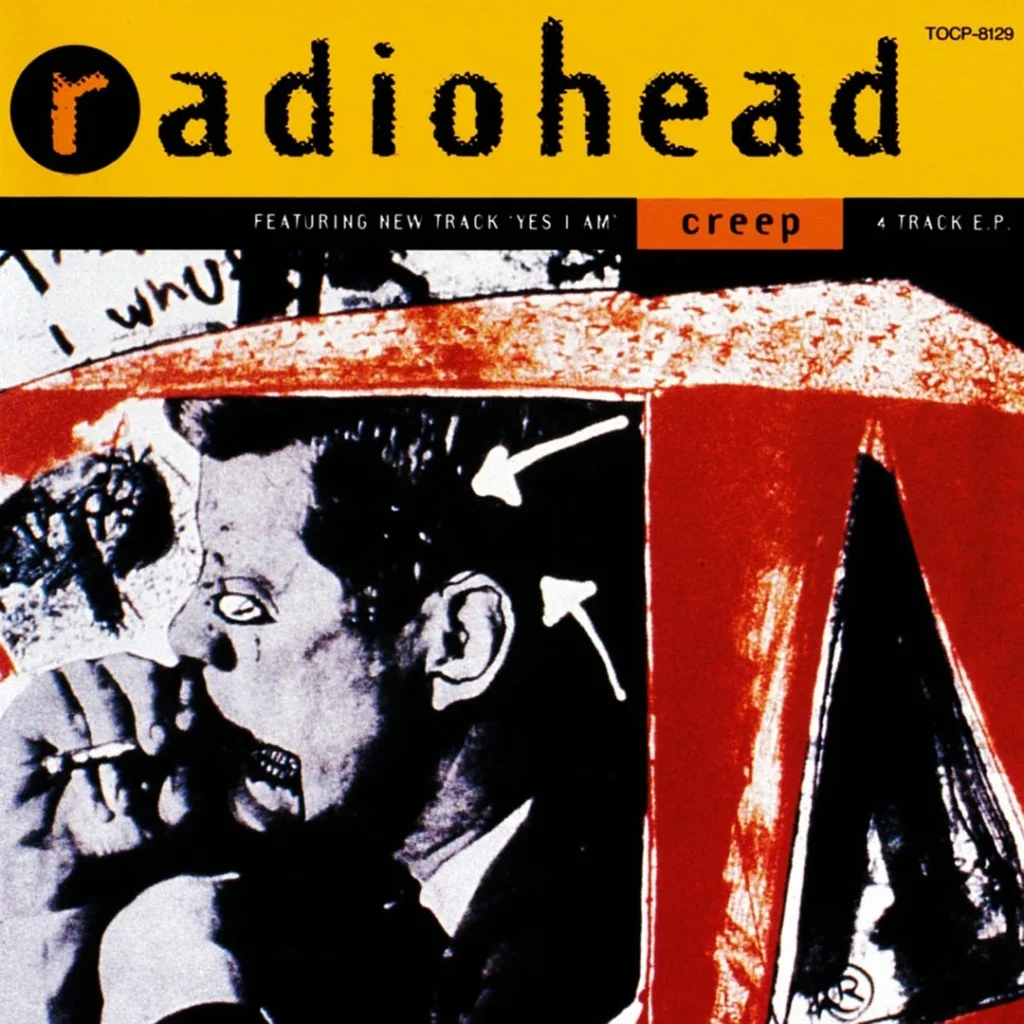“From haunting lyrics to groundbreaking soundscapes, Radiohead has never just made music—they’ve redefined it.”
When you think about bands that have truly reshaped the sound of modern music, Radiohead almost always makes the list. Since the early ’90s, this English rock band has stood out not just for their chart-topping hits like Creep but for their fearless experimentation and refusal to be boxed into one genre. From the raw energy of Pablo Honey to the atmospheric brilliance of OK Computer and the sonic innovation of Kid A, Radiohead has constantly reinvented themselves—challenging both the music industry and their listeners.

What makes them so fascinating is not just their sound, but their ability to capture emotions—alienation, love, chaos, and hope—in ways that feel deeply personal. Over the years, Radiohead has gone from being an alternative rock act to a cultural phenomenon, leaving behind a legacy that still influences artists across genres today.
Who Is Radiohead?
Radiohead is more than just a band—they’re a story of five friends who grew up together and ended up changing music forever. The Radiohead origin goes back to Abingdon, Oxfordshire, where Thom Yorke, Jonny Greenwood, Colin Greenwood, Ed O’Brien, and Phil Selway first picked up their instruments as teenagers. Unlike many groups that come and go, the Radiohead members have stuck together from the very beginning, building a rare bond that has carried them through decades of creativity.
When people look at Radiohead history, the journey usually starts with their debut album Pablo Honey in 1993. That record gave the world Creep, a song that unexpectedly blew up and put the band on the map. But instead of chasing the same formula, Radiohead refused to be defined by one hit. They challenged themselves—and their listeners—with albums like The Bends, OK Computer, and Kid A, each one marking a bold new chapter in their sound.
What makes Radiohead special isn’t just their music, but the way they’ve always stayed true to themselves. From humble beginnings in a small English town to becoming one of the most influential bands in the world, Radiohead’s story is proof that following your own path can inspire millions.
The Evolution of Radiohead’s Music
If you really want to understand what makes Radiohead unforgettable, you have to look at the way their music has changed over time. The Radiohead evolution is one of the most fascinating journeys in modern rock—each album feels like a new chapter, with its own identity and risks.
Their story begins with Pablo Honey (1993), the debut that introduced the world to Creep. While the track became a global hit, the rest of the record showed a band still searching for their voice. That search really took shape with The Bends (1995), where the raw emotion of songs like Fake Plastic Trees and Street Spirit proved they were far more than a one-hit wonder.
Then came OK Computer (1997)—a turning point not only in the Radiohead discography, but in alternative rock as a whole. With its themes of technology, isolation, and modern anxiety, this album became a cultural landmark, often hailed as one of the best Radiohead albums of all time.
But Radiohead didn’t stop there. Instead of repeating their success, they completely reinvented themselves with Kid A (2000). Swapping guitars for synthesizers, beats, and abstract soundscapes, Radiohead proved they weren’t afraid to alienate some fans in order to grow artistically. It was a bold move that paid off—Kid A is now considered a masterpiece of experimental music.
From there, albums like Amnesiac, In Rainbows, and A Moon Shaped Pool showed that the band’s evolution never truly stops. Every release feels like an exploration, pushing boundaries while staying deeply human at the core.The Radiohead evolution isn’t just about sound—it’s about daring to change, daring to grow, and never standing still. That’s why their place in music history feels untouchable.
Radiohead’s Most Popular Songs & Their Meaning
When it comes to Radiohead songs, what sets them apart is not just the sound but the depth of their words. Thom Yorke’s voice and writing often feel like they’re pulling emotions straight from your chest—sometimes painful, sometimes comforting, but always unforgettable. Let’s look at a few of the Radiohead best songs and the meaning behind them.
“Creep” (1993) – This is the song that started it all. Loved and hated by the band in equal measure, Creep became an anthem for outsiders everywhere. The Radiohead lyrics meaning here is raw insecurity and self-doubt—feelings so many of us have, but rarely admit out loud.
“Karma Police” (1997) – From OK Computer, this track captures the frustration of living in a society full of rules, hypocrisy, and corruption. Its haunting refrain, “This is what you’ll get,” feels like both a warning and a release.

“No Surprises” (1997) – Gentle and melodic on the surface, but deeply heavy underneath. The lyrics reflect exhaustion with modern life, a quiet cry for peace in a world that never stops moving.
“Paranoid Android” (1997) – Often called a “mini rock opera,” this song blends anger, chaos, and beauty into one masterpiece. Its meaning has been debated for years, but many fans hear it as a reflection on alienation in a world ruled by machines and greed.
“Everything in Its Right Place” (2000) – Opening Kid A, this song signaled a new direction for Radiohead. The looping, fragmented lyrics mirror confusion, disconnection, and the search for clarity in a noisy, modern world.The beauty of Radiohead lyrics meaning is that they rarely tell you what to feel. Instead, they leave space for your own emotions to fill in the gaps. That’s why their music connects so deeply—because every listener finds a little bit of themselves in it.
Why Radiohead Still Matters Today
In a world where music trends come and go faster than ever, Radiohead remains a band that people keep coming back to. Their relevance isn’t just about nostalgia—it’s about the way their songs continue to speak to what it feels like to be human right now.
Radiohead’s music often deals with themes like isolation, technology, anxiety, and hope. These aren’t just topics from the ’90s or early 2000s—they’re even more real in today’s digital age. When you listen to a track like Everything in Its Right Place or Idioteque, it feels like they were written for the world we live in now, where connection and disconnection exist side by side.
Another reason Radiohead still matters is their courage. Instead of chasing fame or radio hits, they’ve always followed their own artistic instincts. That boldness inspires not just other musicians, but also fans who see Radiohead as proof that staying true to yourself can create something timeless.And then there’s the community. Radiohead isn’t just a band—it’s a shared experience. Their music sparks conversations, inspires art, and creates bonds between fans across generations. Whether you discovered them through Creep in the ’90s or streamed A Moon Shaped Pool years later, their songs feel like they belong to you.
Radiohead in Concerts & Live Performances
If listening to Radiohead through headphones feels like stepping into another world, experiencing them live is something else entirely. A Radiohead concert isn’t just a gig—it’s a journey. The band is known for creating an atmosphere where every note, every lyric, and every light on stage pulls you deeper into their universe.
Unlike many bands that stick to the same setlist, Radiohead thrives on unpredictability. A Radiohead tour often features rare tracks, reimagined versions of old favorites, and spontaneous moments that make each show feel unique. Fans never really know what to expect, which is part of the magic.
One of the most striking things about Radiohead live is how human it feels, despite the layers of sound and technology. Thom Yorke’s voice—fragile one moment, soaring the next—carries an intensity that recordings can’t fully capture. Meanwhile, the rest of the band builds soundscapes that turn arenas and festival grounds into intimate spaces of connection.
For many fans, seeing Radiohead in concert is more than entertainment—it’s an emotional experience. Whether it’s the hush that falls over a crowd during Pyramid Song or the collective roar when Paranoid Android kicks in, these are moments that stick with you for life.Simply put, a Radiohead tour isn’t just about music—it’s about feeling something unforgettable alongside thousands of others who get it too.
Fan Reactions & Legacy
One of the most beautiful things about Radiohead is the bond they’ve built with their listeners. Radiohead fans aren’t just casual listeners—they’re part of a global family that has grown with the band through every era. Whether it’s swapping theories about lyrics, collecting vinyls, or sharing live recordings, the Radiohead community is known for its passion and depth.
For many fans, discovering Radiohead feels like finding music that finally “gets it.” Songs like Creep give voice to insecurity, while Everything in Its Right Place or Pyramid Song capture feelings that are hard to put into words. That’s why people from completely different backgrounds connect so strongly to their music—it speaks to universal emotions.

The Radiohead legacy is more than their albums or critical acclaim. It’s the way they’ve inspired countless artists to take risks and create honestly, even if it means going against the grain. It’s also about the way their music continues to resonate with new generations, proving that art with honesty and depth never really gets old.
At the heart of it all, Radiohead has given people not just songs, but a sense of belonging. For fans, the band isn’t just part of their playlist—it’s part of their life story.
FAQs
1. Who are the members of Radiohead?
The Radiohead members are Thom Yorke, Jonny Greenwood, Colin Greenwood, Ed O’Brien, and Phil Selway. Remarkably, the lineup has stayed the same since the band’s early days in Abingdon, England.
2. What is Radiohead’s most famous song?
Creep is probably their most widely recognized track, but fans also consider songs like Karma Police, No Surprises, and Paranoid Android among the Radiohead best songs.
3. Which Radiohead album is considered their best?
Many critics point to OK Computer or Kid A as the most influential Radiohead albums, but the “best” really depends on personal taste—some fans swear by In Rainbows for its emotional warmth.
4. Why did Radiohead stop playing “Creep” at concerts?
The band distanced themselves from Creep for years because they didn’t want to be defined by a single hit. However, they’ve occasionally brought it back into their live shows, often as a special moment for longtime Radiohead fans.
5. Is Radiohead still active today?
Yes. While the band members often explore solo projects, Radiohead hasn’t disbanded. Fans still hope for future releases or another Radiohead tour.6. What makes Radiohead’s music so unique?
It’s the mix of experimentation, emotional honesty, and willingness to evolve. Every album in the Radiohead discography feels like a new chapter, and that constant reinvention is what keeps them timeless.
“Just as politics sparks passionate debates—like in my blog on Trump vs. JB Pritzker: Who Holds the Political Edge?—Radiohead’s music continues to inspire strong reactions and conversations among fans worldwide.”